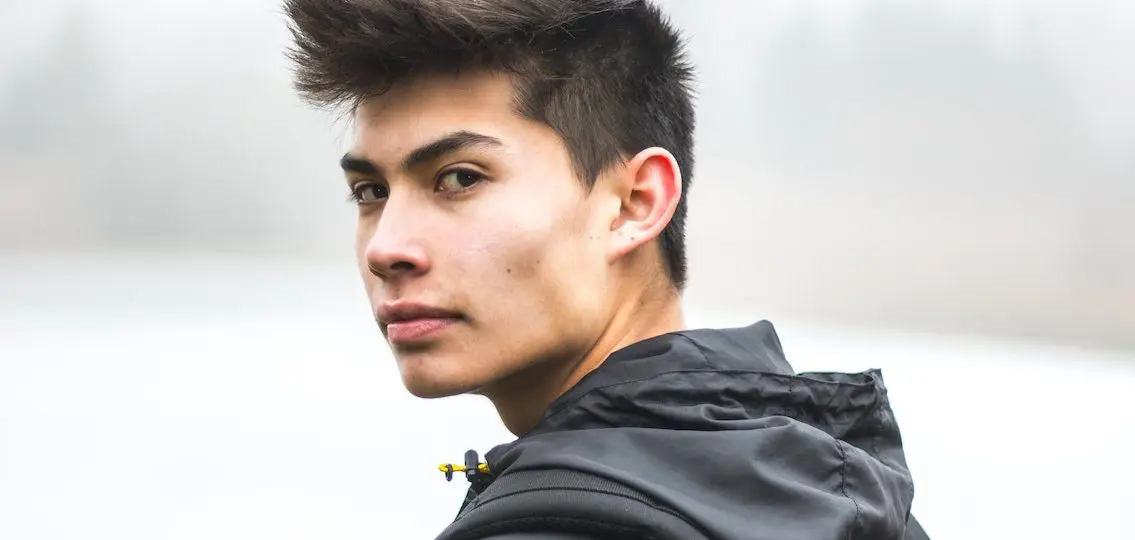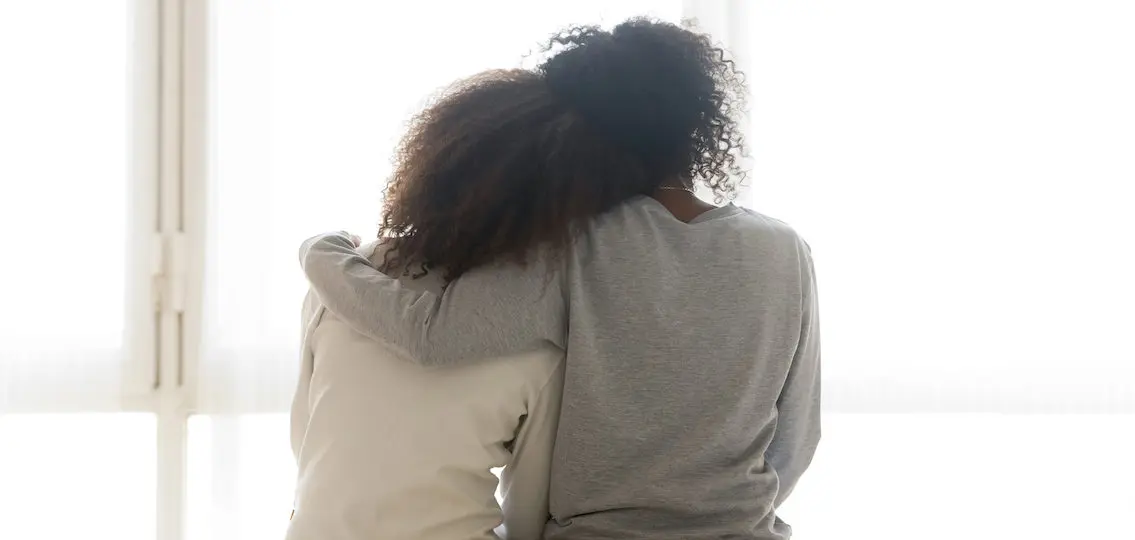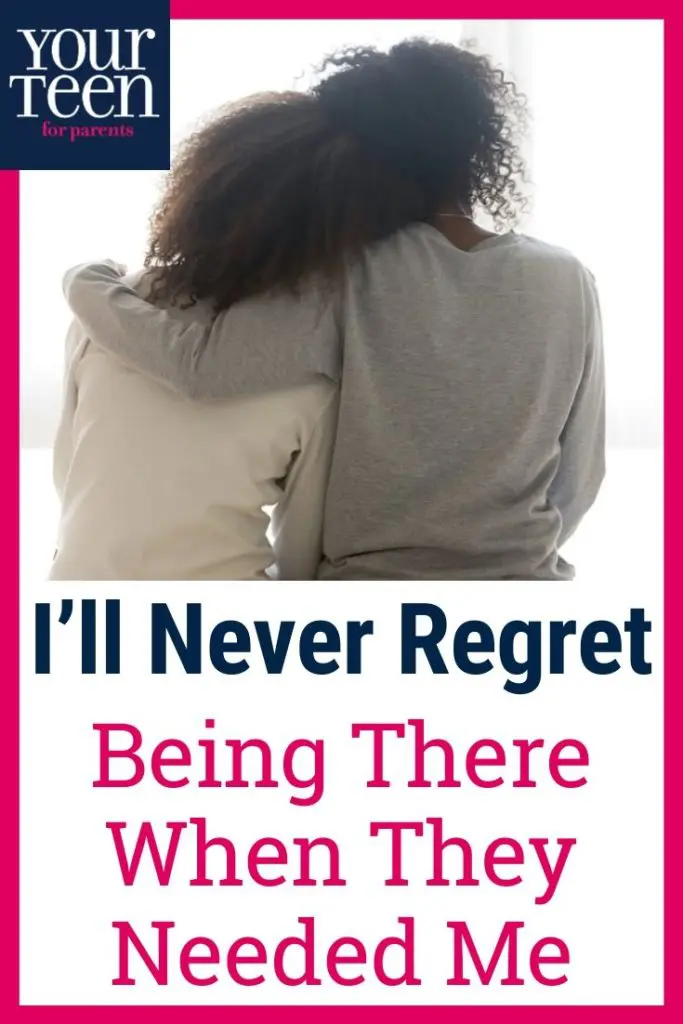Before coronavirus hit the pause button on life as we were used to living it, my teenager came into my room one morning before school and climbed into bed with me. Most days, I got up at the same time she did and went downstairs to make coffee, but that day, I was still working up the motivation to move.

Nothing was wrong with her. She didn’t really need anything. She wasn’t asking me to do anything. She just came in and snuggled close and let me hold her for a little while. It was a very rare treat.
Later, before she left for school, I told her how much I had enjoyed that unexpected gift, how glad I was she’d come into my room. She told me, “I was hoping you’d be there.”
And I thought, “Oh, love. ‘There’ is where I still want to be for you, as much as I can be, as long as I can be.”
This is how it is with our big kids: they do a lot of life on their own, as they should and must.
They figure things out and make their way. They look ahead and move forward. We are proud of them, and we are glad for them.
But when they get to the point of saying (whether they actually speak the words or not), “I was really hoping you’d be there,” “there” is where we want to be.
There when they win—and when they lose.
There when their hearts are broken.
There when they’re celebrating.
There when they don’t know what to do.
There when they make a mistake.
There when life gets to be too much.
There when a dream comes true.
There when they just need a minute to catch their breath before they hit the ground running again.
“There” might be our bedroom at 5:30 a.m. or our kitchen at midnight. It might be in a car in a parking lot or at a restaurant over pizza. It might be in the bleachers after a game or on the couch under blankets.
The older our kids get, the more our parenting shifts from doing to being.
When our teens don’t have friends, we can’t set up playdates for them. When they don’t understand their homework, we usually don’t know the material well enough to help them. When they don’t get the job or the part or the spot on the team, we can’t (and shouldn’t) plead their case with the employer or director or coach. Their hurts, when they happen, are more often emotional rather than physical, so we can’t just slap a bandage and a kiss on them.
So we do what we can, which is to hover nearby, ready to offer our presence. We wait up for them—and show up for them. We charge our phones and turn up the volume. We leave the door of communication open. We clear our schedules if necessary.
We are not solving our teens’ problems for them. We aren’t doing their work. We aren’t fixing their relationships. But we’re letting them know they are not left on their own. We are worrying and crying and hoping and cheering with—and for—them. We are watching for our chance to smooth the rough edges, to fill in some gaps. We’re waiting and ready: on the phone, in the stands, on the couch, in the car.
We know we have to let our big kids go.
We know they have to do for themselves. But we help them get to the point of being on their own in fits and starts. We unclench our fists slowly, finger by finger. We let them go a little, then pull them back, then let them go a little more. We follow at a safe distance, giving them space, hoping for their sakes they don’t really need us—but ready when they call.

And in all this—as much as it’s within our power and doesn’t hold our teens back—when they’re hoping we’ll be there, there is where we want to be.





